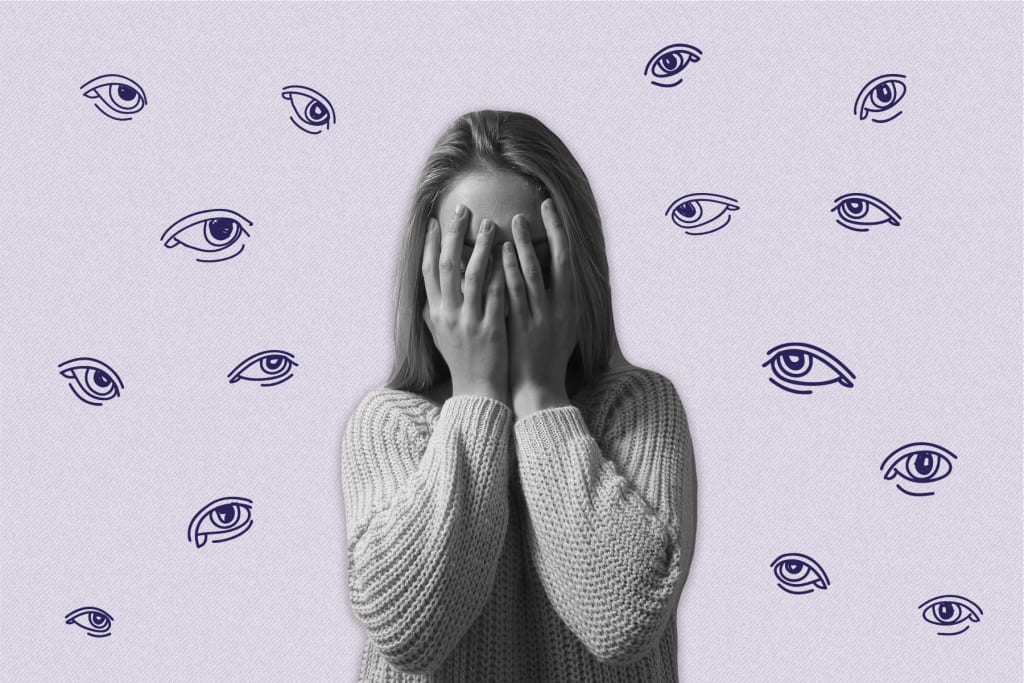
I've experienced anxiety from a very early age. I lived with my mom for most of my childhood, and she was everything I had at that time. Around when I was 6 or 7, I started having anxiety about losing my mom. At night, I pretended to sleep until she went to bed, and throughout the night, I would put my finger under her nose to check if she was breathing. This type of behavior evolved during my teenage years, and as a result of some unfortunate events, it intensified. I now had anxiety about public speaking, traveling, health, making friends, etc. I always felt like something horrible will happen, and I should always be on the lookout. But I managed to keep it under control somehow and went to college. My major was design-based, and my success relied heavily on the judgment of others. And at that point, at the fresh age of 19, I broke down. I couldn't speak or present my work to my professors without my heartbeat going up to 120. My hands would freeze, my throat would dry up, and I couldn't even give logical answers to any questions about my work. I felt horrible about myself and I thought this was going to be the end of me. I've decided to see a therapist with the insistence of my mom. I saw different therapists on and off throughout my education, and I've learned many tips and tricks about dealing with anxiety. Here's what I know:
1. Anxiety never fully goes away.
I know this sounds grim, but hear me out. Anxiety is normal. It saved our ancestors from dying when they encountered danger back in the day. I've realized with myself that sometimes, I'm anxious about feeling anxious. But all feelings are valid, and they probably mean a deeper issue about ourselves. Rather than looking for a magical cure, we should accept it, sit with it, and understand that sometimes it may even serve us.
2. Doing something physical helps
Although everyone and their mother gave this advice to you, there's truth in it and I'm going to repeat it. At moments of high-level anxiety, you tend to spiral into scary thoughts, and it's hard to break that cycle in your mind. When you notice this, do something with your body. You can splash cold water to your face, exercise breathing techniques, or even jump up and down. You may have heard of Dialectical behavior therapy (DBT), it's an evidence-based treatment for personality disorders. There are many details about it, but this therapy supports the idea that physical stimulants help us regulate our responses. So when a moment like this comes, I try to do breathing exercises, move around, use my voice (shout or sing) and break the pattern my mind is spiraling into. It's also helpful to check out DBT and learn more about the tools.
3. You should learn more about it
There was a time when I knew barely anything about anxiety. I thought it was just stress, but more intense. After I got my diagnosis, I got curious and started reading about it. Reading other people's stories made me feel seen, and like I'm some anomaly who's burdening everyone. I've learned about the physical signs of anxiety, different therapy styles, and the reasons why we may have it. I've learned that my grandmother and my father also struggle with anxiety, but they don't acknowledge it. It made me understand their behaviors and made me relate to them more. Gaining knowledge about it will make you feel equipped to find the tools necessary to deal with anxiety.
4. Don't be scared of medication
When I was first prescribed Lexapro, I was 19. I threw the prescription right into the trash when I left the psychiatrist's office. I felt angry at the psychiatrist for thinking that something was wrong with me, and I felt mad at myself because I couldn't solve this problem by myself. I resisted taking medication for three years, but I couldn't cope anymore and decided to give it a shot in my last year of college. And let me tell you, it helped so much. I could see what my anxiety was saying and how it affected me. I saw the potential of a better way of living, and I stopped blaming myself for not being able to push through it every time. Although I've stopped taking medication for a while now, I'm glad that I pushed beyond the judgment of others, and even myself, and tried it. Mental illness is not something we can control, and we are not weak for not being able to feel okay. It took me a while to accept that, and I sometimes doubt myself for having anxiety. But it's okay, and everything will be okay. Sometimes that's all we need to hear. It's going to be okay.





Comments
There are no comments for this story
Be the first to respond and start the conversation.